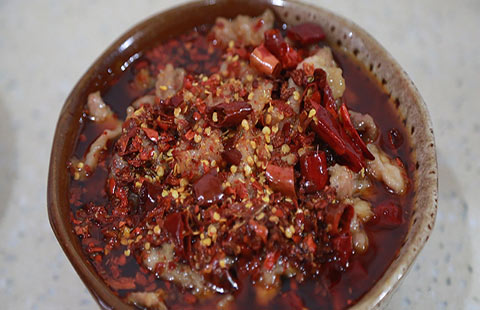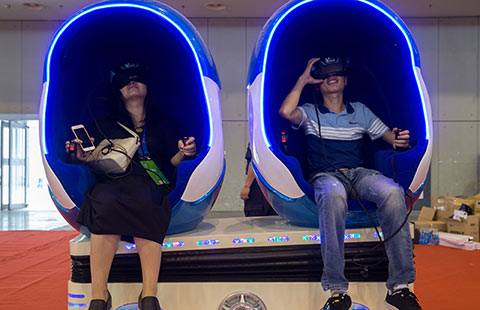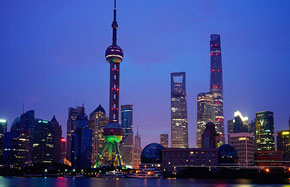China-ASEAN industrial cooperation gains steam
NANNING - Chen Min, chairman of Guangxi Ruian Logistics Group, is looking for business partners from Brunei at the ongoing China-ASEAN Expo, preparing to set up a halal food and spice factory in the country.
Chen has signed an agreement with Brunei to build the factory that will process spices from Guangxi and sell them to Muslim countries, especially the Middle East.
"We hope the spices will eventually account for 20 percent of the amount sold worldwide," Chen said, hoping to attract a good reputation for Brunei's halal certification.
Like Chen, many entrepreneurs have come to the expo in Nanning, capital of south China's Guangxi Zhuang autonomous region, looking for cooperation in industrial capacity, direct investment, project outsourcing and technology.
Themed "Co-Building the 21st Century Maritime Silk Road, Promoting Regional Economic Integration through Tourism," this year's expo drew 2,709 exhibitors, up 1.5 percent from the previous event. Brunei is the Country of Honor.
ASEAN (Association of Southeast Asian Nations) is China's third-largest trading partner, while China is ASEAN's largest trading partner. Bilateral trade exceeded $452 billion last year and the figure hit $277 billion from January to July this year. By May, their accumulated two-way investment exceeded 183 billion.
Industrial capacity cooperation has been a hot topic at the event since 2015.
Welcome to Brunei
"Chinese equipment is cost efficient, and it has advantages in technology, training and financing, enabling China and ASEAN countries to nurture new comparative advantages and create new room for economic growth," Chinese Vice-Premier Zhang Gaoli said Tuesday while addressing the opening ceremony of the expo.
Chen's business is a good match for Brunei, as the country diversifies its economy and reduces reliance on oil and gas.
Chinese companies are more than welcome to be part of Brunei's transition, Sultan Haji Hassanal Bolkiah said when meeting entrepreneurs. The halal food industry is one of the sectors which would most benefit from foreign investment and expertise.
Guangxi has strong industrial capacity, managerial and investment experience while Brunei offers entry into a fast-growing global Muslim market, said the Sultan.
With proximity to ASEAN countries, Guangxi is expanding industrial cooperation with the group. Last year, companies in the region signed outsourcing deals worth 415 million dollars with countries along the Belt and Road, mainly ASEAN members, covering house construction, as well as projects in power, traffic, water engineering and telecommunications, according to the regional commerce department.
From January to April, 12 countries along the Belt and Road each signed outsourcing projects worth over $100 million with China, including seven from ASEAN countries.
Intelligent cooperation
Industrial capacity cooperation between China and ASEAN has proceeded much more smoothly, according to Yao Hua, head of the Guangxi Academy of Social Sciences Industrial Institute.
At this year's expo, an exhibition hall was dedicated to intelligent equipment, including drones, robots, 3D printers, and environmental protection equipment, signaling the elevated level of the industrial cooperation, Yao said.
Some ASEAN countries, whose manufacturing remains at a low level, have high demands for China's advanced equipment and production capacity, Yao said.
In the exhibition hall, a Guangxi research institute displays its award-winning robot developed in 2015 to clean industrial tanks. The robots have been sold to sugar plants in Thailand and were well received, said Wei Fuquan, a marketing manager with the institute.
"In factories, more and more young people are reluctant to do the job, because cleaning tanks with high-pressure hoses is hard and dangerous. Robots do a much better job, with no risk to the workers," Wei said.
Not satisfied with just selling the robot, the institute is in talks with Thai partners to manufacture it there.
"We offer the technology, they offer the labor," Wei said.
Some large China-ASEAN projects are going well, including Indonesia's high-speed rail link connecting the capital Jakarta with Bandung.
The railway will cut the journey between the two cities from over three hours to just 40 minutes.
All technology and equipment used in the project came from China, according to the constructor China Railway.
The Malaysia-China Kuantan Industrial Park, jointly developed by Malaysia and China, is on track to achieve its investment target, according to its chairperson Soam Heng Choon.
Soam said most of the investment came from China and was mostly related to energy-saving and environmental technology, high-end equipment and advanced materials manufacturing.
A steel plant in the park, which can produce 3.5 million tons a year, is expected to start operation by the end of this year. The Malaysian government believes the project could help phase out small local plants that are high-consuming and high-cost.
A sister park that is also under construction, China-Malaysia Qinzhou Industrial Park in Guangxi, favors investment from emerging industries, such as intelligent manufacturing, new energy and biotechnology, according to the park administrator Gao Pu.

























